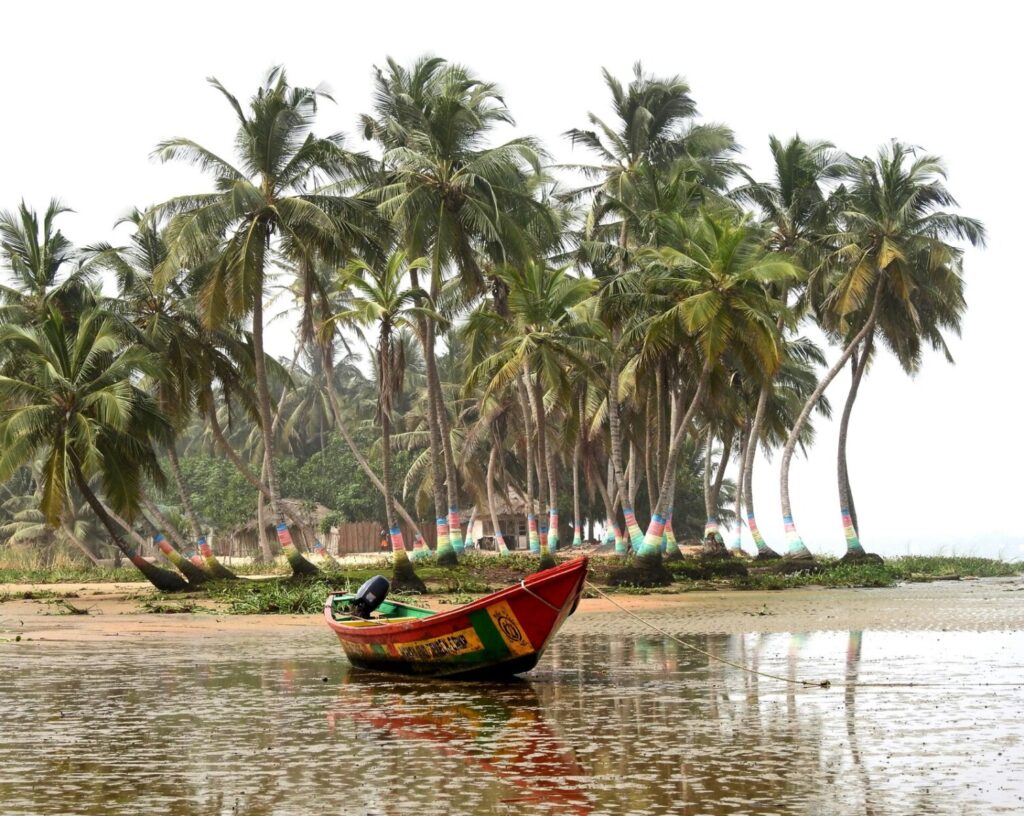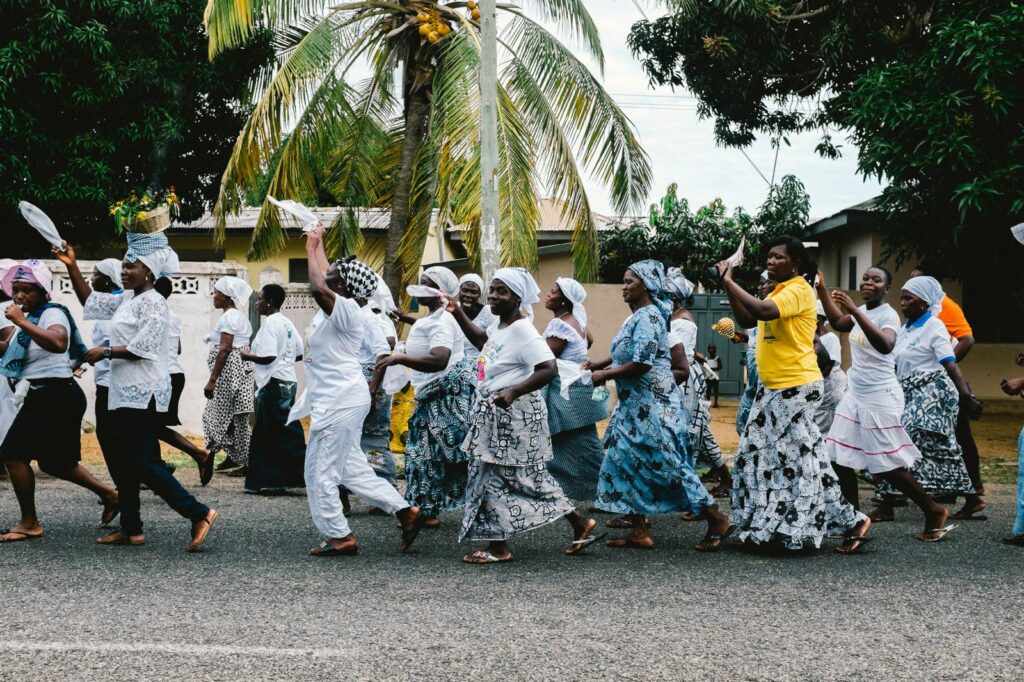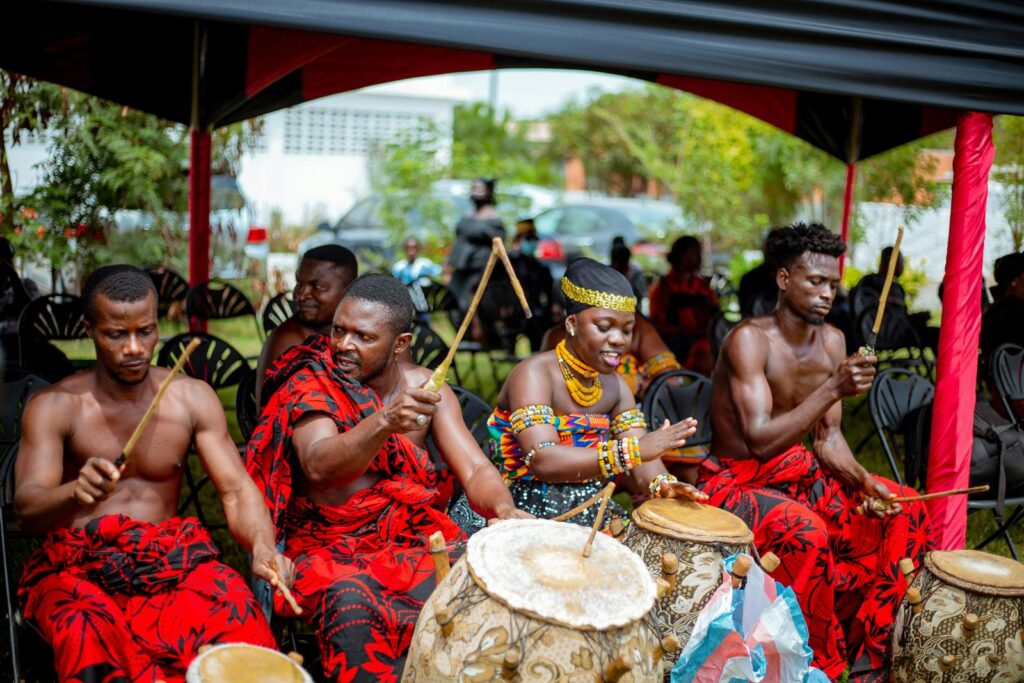Ghana is an incredible country that captivates you from the very first moment: its people, its hospitality, its landscapes, and the cultural richness that can be felt in every corner. For those who participate in a volunteer experience here, language becomes a bridge that brings you even closer to the local community.
Although the official language of Ghana is English, the country is home to more than 70 languages and dialects, with Akan (particularly Twi and Fante) being among the most spoken.
What is wonderful about these languages is not only their musicality, but also the depth of many of their words, which convey values, emotions, and ways of understanding life.

Today we want to share with you some of the most beautiful Ghanaian words, those that reflect the essence of the country and that you will undoubtedly hear or use during your volunteer experience.
- Akwaaba – Welcome
This is probably the first word you will hear upon arriving in Ghana. Akwaaba is not simply a “welcome”: it is a gesture of sincere hospitality, an invitation to feel at home, an expression that reflects the warm and open character of Ghanaians.
- Obroni – Foreigner
Although it may sound curious, the word obroni is used affectionately to refer to foreigners. It does not have a negative connotation; on the contrary, it reflects the natural way in which Ghanaians recognize and embrace those who come from outside.
- Anidasoɔ – Hope
This word carries enormous beauty. Anidasoɔ means “hope,” but beyond a simple wish, it implies trust, optimism, and faith in the future. In a community-based culture like Ghana’s, hope is a shared value.
- Ayekoo – Well done / Congratulations
It is used to recognize someone’s effort. It can be said after working, cooking, or completing a task. It is a beautiful way to value what others do, even in daily life.
- Me dɔ wo – I love you
Twi has different ways of expressing love, but one of the most beautiful is me dɔ wo, which means “I love you.” A short phrase that holds all the affection and closeness of the Ghanaian language.

- Nkabom – Unity
In Ghana, community and togetherness are essential. Nkabom means “unity” or “being together,” and it reflects one of the country’s strongest values: the importance of supporting one another and walking together.
- Sankofa – Return to the roots to move forward
More than a word, Sankofa is a philosophical concept deeply rooted in Ghanaian culture. It literally means “to go back and fetch what has been left behind.” It is an invitation to learn from the past in order to build a better future. In fact, the Sankofa symbol, represented by a bird turning its head backwards, is very present in Ghanaian art and tradition.
- Ɛyɛ – It’s okay / Everything is fine
A short but powerful expression. It is used to convey peace, calm, and acceptance. A way of saying that everything is in order, even in the most difficult moments.
- Ɛban – Close to home / Safety
This word has a double meaning. Literally, ɛban refers to the space near the home, but it is also used as a metaphor for protection, care, and security.
- Nyame – God
In many everyday expressions, the word Nyame, meaning God, appears. In Ghana, spirituality and faith are deeply rooted in daily life, and this is reflected in phrases such as Nyame adom (“by the grace of God”).

More than words: a way to connect
Learning some of these words will not only enrich your volunteer experience, but will also open doors to connect more closely with the local community.
At Cooperating Volunteers we believe that this experience is not only about giving, but also about receiving. And one of the most beautiful ways to receive is to let yourself be immersed in the local culture: its smiles, its customs… and, of course, its words.
If you are thinking about living a volunteer experience in Ghana, get ready to hear and use many of these expressions.




